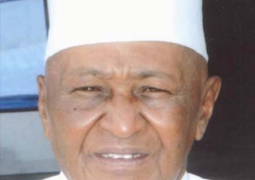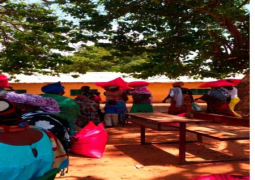Over the past few years, a few African states denounced and undermined the international court, saying that international justice as represented by the ICC is an imposition, if not a plot, by the industrialised West.
To us, the outcry against justice demeans the yearning for human dignity that resides in every human heart.
Over the decades, there has been a lot of atrocities and human rights violations being committed by African leaders against those they rule, for which they should be held accountable.
People the world over wanted to know that wherever and whenever the worst atrocities were committed - genocide, war crimes or crimes against humanity, gross human rights violations - there would be a court to bring to justice anyone in a government hierarchy or military chain of command that was responsible.
That principle should be applied without exception, whether to the lowliest soldier or the loftiest ruler.
Thus, the International Criminal Court was formed.It now has 108 states, including 30 African countries, representing the largest regional bloc among the member states.
Some of the court’s judges are African. The ICC reflects the demand of people everywhere for a court that can punish these serious crimes, and deter others from committing them.
The African opponents of the international court argue that it is fixated on Africa because most of its cases so far all concerned alleged crimes against African victims. One must begin by asking why African leaders shouldn’t celebrate this focus on African victims.
Do these leaders really want to side with the alleged perpetrators of mass atrocities rather than their victims? Is the court’s failure to date to answer the calls of victims outside of Africa really a reason to leave the calls of African victims unheeded?
It’s also important to remember that the ICC, as a court of last resort, acts only when national justice systems are unwilling or unable to do so. There will be less need for it to protect African victims only when African governments themselves improve their record of bringing to justice those responsible for mass atrocities.
The ICC represents hope for victims of atrocities and sends a message that no one is above the law. That hope and message will be undermined if the African Union condemns the court because it has charged an African head of state. The African Union should not abandon its promise to fight impunity.
Unless indicted war criminals are held to account, regardless of their rank, others tempted to emulate them will not be deterred, and the African people will suffer.
We have little hope of preventing the worst crimes known to mankind, or reassuring those who live in fear of their recurrence, if African leaders stop supporting justice to be seen to be done to their own people.
The rights of those who have been violated by their so-called leaders, is of paramount importance to all and sundry, irrespective of national or regional barriers.
“No nation is permitted to live in ignorance with impunity”
Thomas Jefferson
Read Other Articles In Article (Archive)
Crop failure negatively impacted on NARI rain-fed cropping - report
Oct 19, 2012, 10:50 AM



